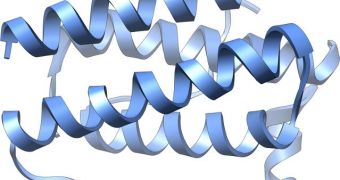Controlling the symptoms and effects of diabetes is something that patients suffering from this metabolic disorder need to do every single day of their lives. Their bodies are unable to produce the hormone insulin, which is used to metabolize sugars (glucose), and so they need to get it from elsewhere. Usually, they have to take insulin shots daily, in order to ensure that their health does not deteriorate. But now researchers believe they may have found an alternative to this life-long course of treatment, ScienceNow reports.
Since 1922, all diabetics have been treated using insulin, and the method works. But it drastically reduces sufferers' quality of life, and makes them extremely sick if insulin is no longer available. A new scientific investigation seems to suggest that using insulin to control sugar metabolism may no longer be necessary. The research, conducted entirely on mice, shows that the hormone leptin could be used for the job, with the same amount of success. In more recent years, the focus of this research has shifted to leptin gene therapy, applied directly to the brain.
Until now, doctors used a variety of methods to keep diabetes in check, including early on anti-immune therapies, transplanting insulin-producing cells, or forcing the patients' own to resume their work. Leptin was also considered for a similar approach, but may experts suggest that it may be put to better use in gene therapy. Details of the new approach appear in the latest online issue of the respected journal Proceedings of the National Academy of Sciences (PNAS). The work was done at the University of Texas Southwestern Medical Center, in Dallas, and was led by diabetes researcher Roger Unger. He and his team managed to obtain some exciting results using mice.
The experts noticed that leptin played an important part in hindering the production of glucagon, which is a hormone that has an opposite action to insulin. The end-result was the same, as in lower blood sugar levels, but the mechanism employed was different. Rather than producing insulin, the new method stopped the accumulation of sugar, therefore eliminating the need for more insulin altogether. “It’s substitute insulin. In type 1 diabetes, if you have a lot more leptin, it should help,” says University of Florida neuroscientist Satya Kalra, who was one of the earliest pioneers in leptin gene therapy.

 14 DAY TRIAL //
14 DAY TRIAL //